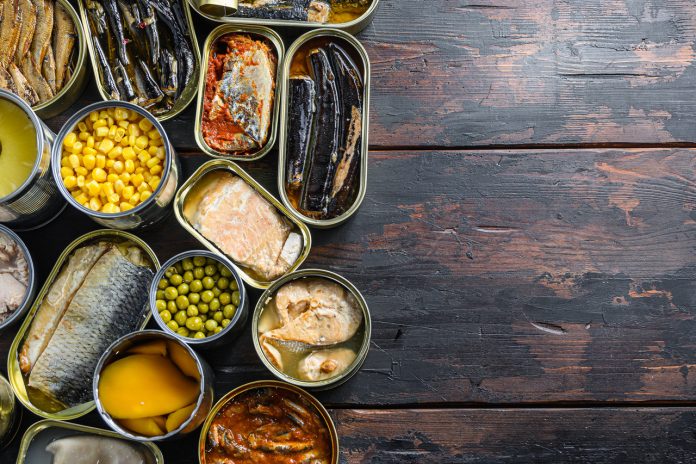It can result in excessive glucose in the bloodstream, leading to health problems over time.
The precise causes of diabetes are unknown, despite the fact that it is a prevalent ailment.
But food and nutrition can play a role, particularly in type 2 diabetes, prediabetes, and gestational diabetes.
The things you eat and drink can have an impact on your blood sugar levels. For example, consuming a diet high in refined carbohydrates and added sugars may cause sudden spikes in blood sugar levels, which can lead to diabetes.
You cannot change your genetics, age, or race, but you can change your diet by paying attention to the foods and beverages you eat and drink. Know which foods are most likely to cause diabetes so that you may make better choices.
Relationship Between Diabetes and Food
Understanding the connection between diet and diabetes can be difficult, particularly if you have just received a diagnosis. How well your body uses fat, protein, and carbs for energy affects how the two are related.
The kind and quantity of food you eat will determine how much insulin you require. For instance, eating foods high in carbohydrates causes your body to start producing insulin right away.
It will result in a brief rise in blood sugar (often referred to as a postprandial spike) prior to the insulin’s actions taking effect. Individuals with type 1 diabetes, who are unable to manufacture insulin on their own, may see blood sugar rises that are more intense and stay longer.
According to a study, each person’s blood sugar response to food is very unique. Furthermore, blood sugar surge timing might differ from person to person and from meal to meal. As a result, monitoring your blood sugar levels before and after meals is essential if you have diabetes, especially type 1. With a continuous glucose monitor (CGM), post-meal patterns can be measured most accurately.
With the latest iteration of HealthifyPRO 2.0, you can monitor your blood glucose levels after meals with ease thanks to a wearable continuous glucose monitoring system that includes graphs and eliminates the need for finger pricking. Not only does CGM monitor your glucose levels after meals, but it also continuously measures them using a small sensor that is worn on your arm.
encourages you to make everyday attempts to maintain your health rather than pressuring you to aim for ideal blood glucose levels.
To achieve enduring and sustainable results, the Pro Plans offer expert coach advice, actionable insights, and real-time, data-driven decision-making.
What Food Causes Diabetes?
Red Meat
Studies also reveal that a daily meal of red meat leads to a 19% increase in type 2 diabetes, despite the fact that most people believe that red meat is a cause of heart disease.
diabetes risk.
Consuming red meat—mostly processed red meat—can also lead to additional health issues associated with type 2 diabetes. Consequently, the risk of type 2 diabetes is reduced when red meat is substituted with a better protein source, such as skinless chicken, almonds, low-fat dairy, or whole grains.
Processed Foods
The risk of developing diabetes rises by 51% when processed foods are regularly consumed in place of fresh ones. Processed foods’ high sodium, sugar, flavoring, and preservative content may contribute to the development of diabetes. Thus, if feasible, opt for complete foods.
Saturated and Trans Fats
While trans fats are found in processed meals like baked goods and fried snacks, saturated fat is often found in animal-based items like butter and whole milk.
Even if a nutrition label says 0 grams of trans fat, there are possibilities of residual trans fat of fewer than 0.5 grams. Both types of fat can increase bad cholesterol (LDL) levels, insulin resistance, and poor glucose tolerance. You become more susceptible to diabetes as a result. Attempt to consume a diet high in mono- and polyunsaturated fats instead.
Added Sugar and Sodium
Diabetes is mainly caused by a diet heavy in sodium or added sugars.
Blood sugar spikes are brought on by added sugar, whereas other health problems like high blood pressure and heart disease are caused by consuming more sodium. All of these eventually lead to the development of prediabetes, which in turn leads to type 2 diabetes.
Snacking on Dried Fruit
Although eating too many dried fruits can result in blood sugar rises, they may look like a healthful snack. This is so because the fiber material in dried fruits, which encourages fullness and aids in blood sugar regulation, is mostly lost.
Therefore, eating dried fruits indicates that you are ingesting a significant amount of added sugar without the necessary fiber. An occasional dry fruit snack is acceptable, though. Nevertheless, it is preferable to choose fresh fruits with a high water content and a low GI.
Simple Carbohydrate-rich Foods
Your blood sugar is frequently affected when you eat starchy veggies with other foods high in carbohydrates For instance, eating sweet potatoes and rice together will dramatically affect your blood sugar levels after eating.
Continue reading: Foods high in carbohydrates that you should consume
While eating too many carbohydrates doesn’t directly increase your risk of developing diabetes, it can promote obesity, weight gain, and blood sugar rises, all of which can elevate your risk. As a result, exercise moderation and be conscious of the overall carbohydrate content.



























